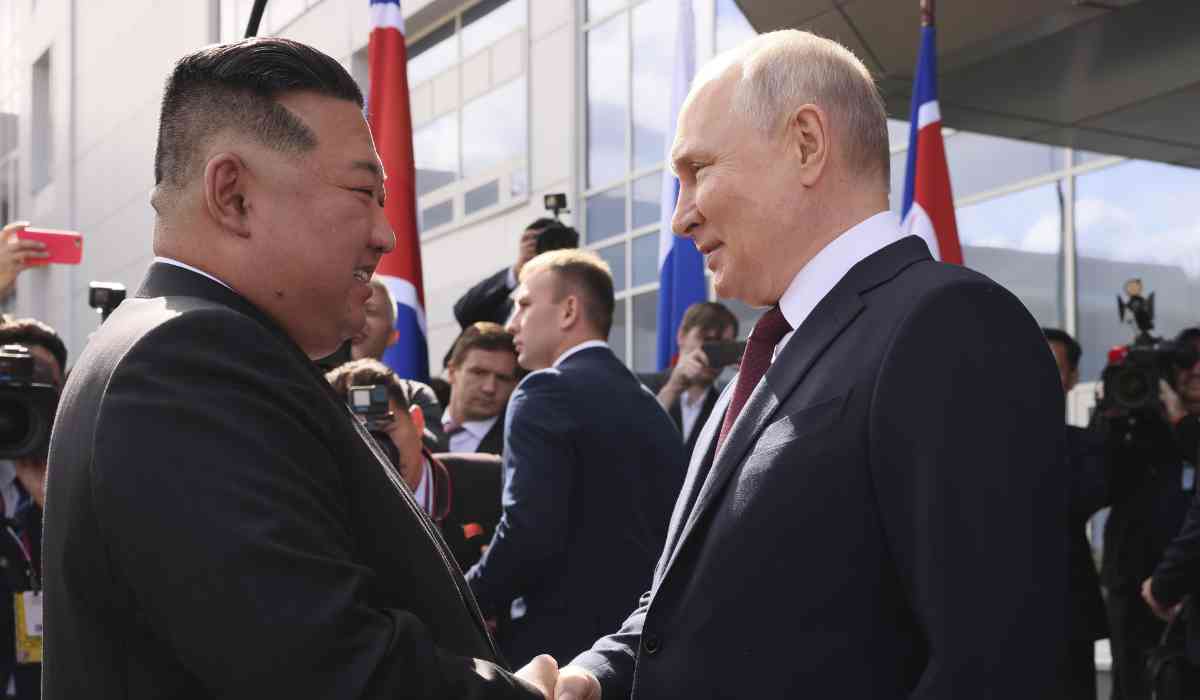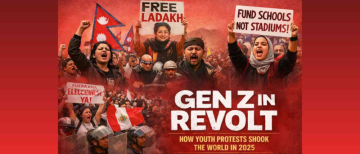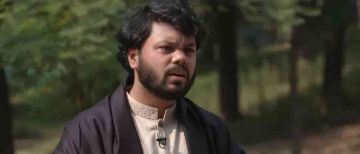Russian President Vladimir Putin made a significant diplomatic visit to North Korea, marking his first trip to the reclusive nation in 24 years. This visit, characterized by warm embraces and ceremonial receptions, underscores efforts to bolster relations between Moscow and Pyongyang, countries increasingly isolated by the West.
Arrival and Initial Diplomatic Gestures
Upon arrival at Pyongyang’s airport early on Wednesday, June 19, Putin was warmly greeted by North Korean leader Kim Jong Un. The leaders proceeded to the Kumsusan State Guest House for further discussions, as reported by North Korea’s official Korean Central News Agency (KCNA).
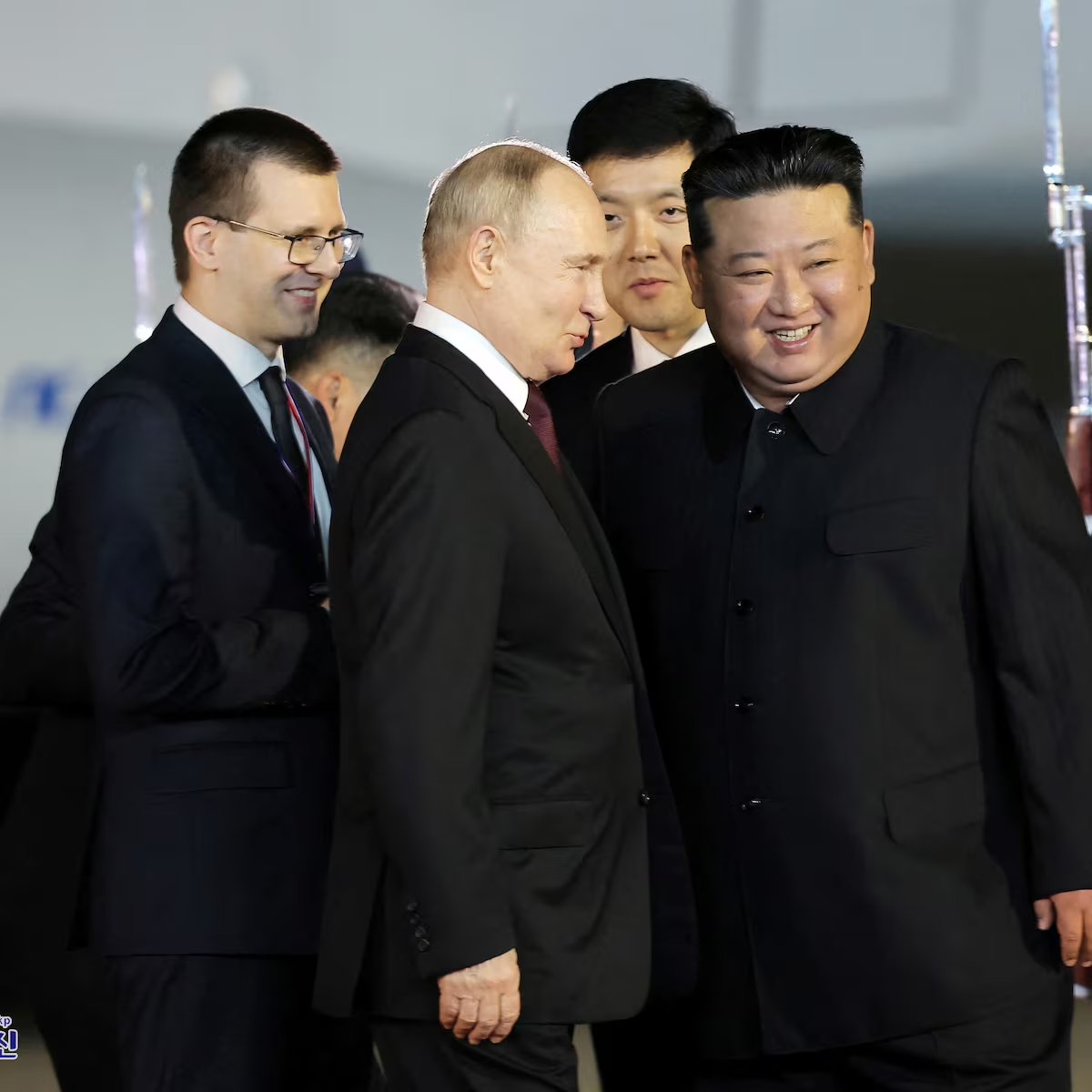
Objectives and Significance of Putin's Visit
1. Diplomatic and Economic Agreements
-
Putin aims to solidify a "comprehensive strategic partnership treaty" with North Korea, focusing on economic and military cooperation.
-
Planned activities include one-on-one talks, a gala concert, and visits to cultural sites, reflecting a broad spectrum of engagement beyond political ties.
2. Strategic Alliances in a Changing Global Landscape
-
The visit underscores a strategic shift amidst escalating tensions with the West, particularly following Russia's involvement in Ukraine.
-
Both leaders seek to leverage the visit to demonstrate unity against Western pressures and bolster their positions on the global stage.
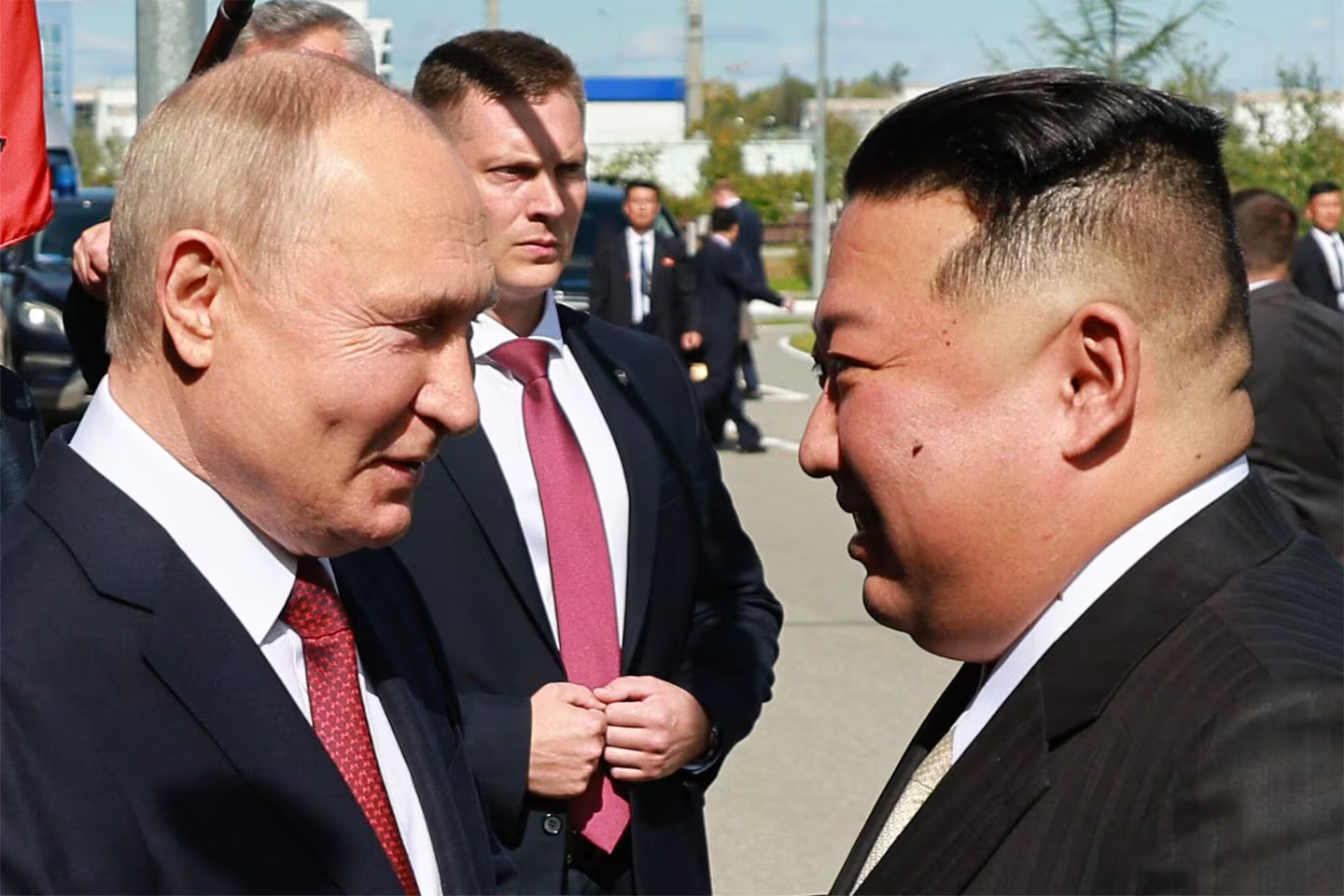
Mutual Interests: What Putin and Kim Seek
1. Economic and Military Cooperation
-
Russia seeks to secure ammunition supplies from North Korea to support its military efforts, especially in light of ongoing sanctions.
-
In return, North Korea aims to acquire advanced military technology and economic assistance, particularly in sectors like natural resources and technology.
2. Strategic Posturing and Global Messaging
-
The visit serves as a message to the international community, particularly the US and its allies, that both leaders have strong allies despite international sanctions and diplomatic pressures.
-
Analysts view the trip as a calculated move to challenge the dominance of Western influence in global affairs.
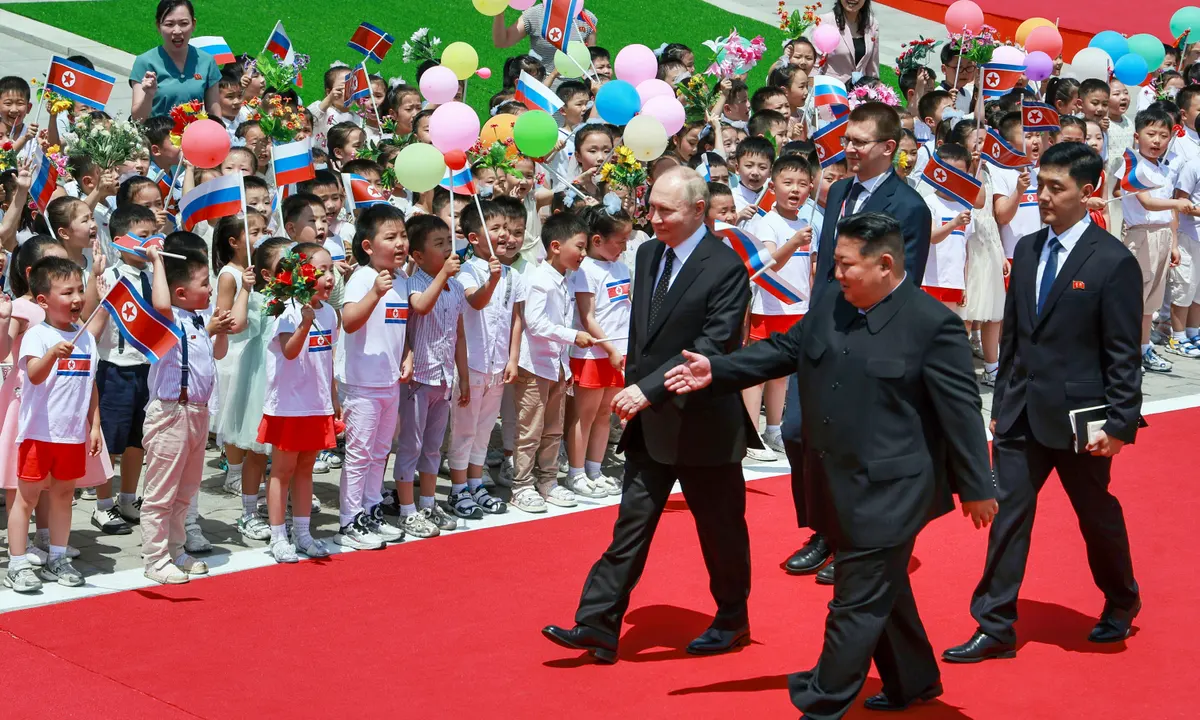
Challenges and Responses to Western Sanctions
1. The Impact of Western Sanctions
-
Since 2014, Western sanctions have targeted Russia's key economic sectors, intensifying post-Ukraine invasion.
-
Despite these measures, Russia has employed various strategies, including the "Eurasian roundabout," to circumvent sanctions by rerouting goods through intermediary countries.
2. Support from China and Other Nations
-
China, Turkey, and the UAE play pivotal roles in assisting Russia in evading sanctions by re-exporting goods and materials crucial for its military and economic needs.
3. Corporate Strategies and Evasion Tactics
-
Russian companies have adopted sophisticated methods, such as setting up operations in third countries and repurposing consumer goods, to sidestep sanctions and maintain operations.
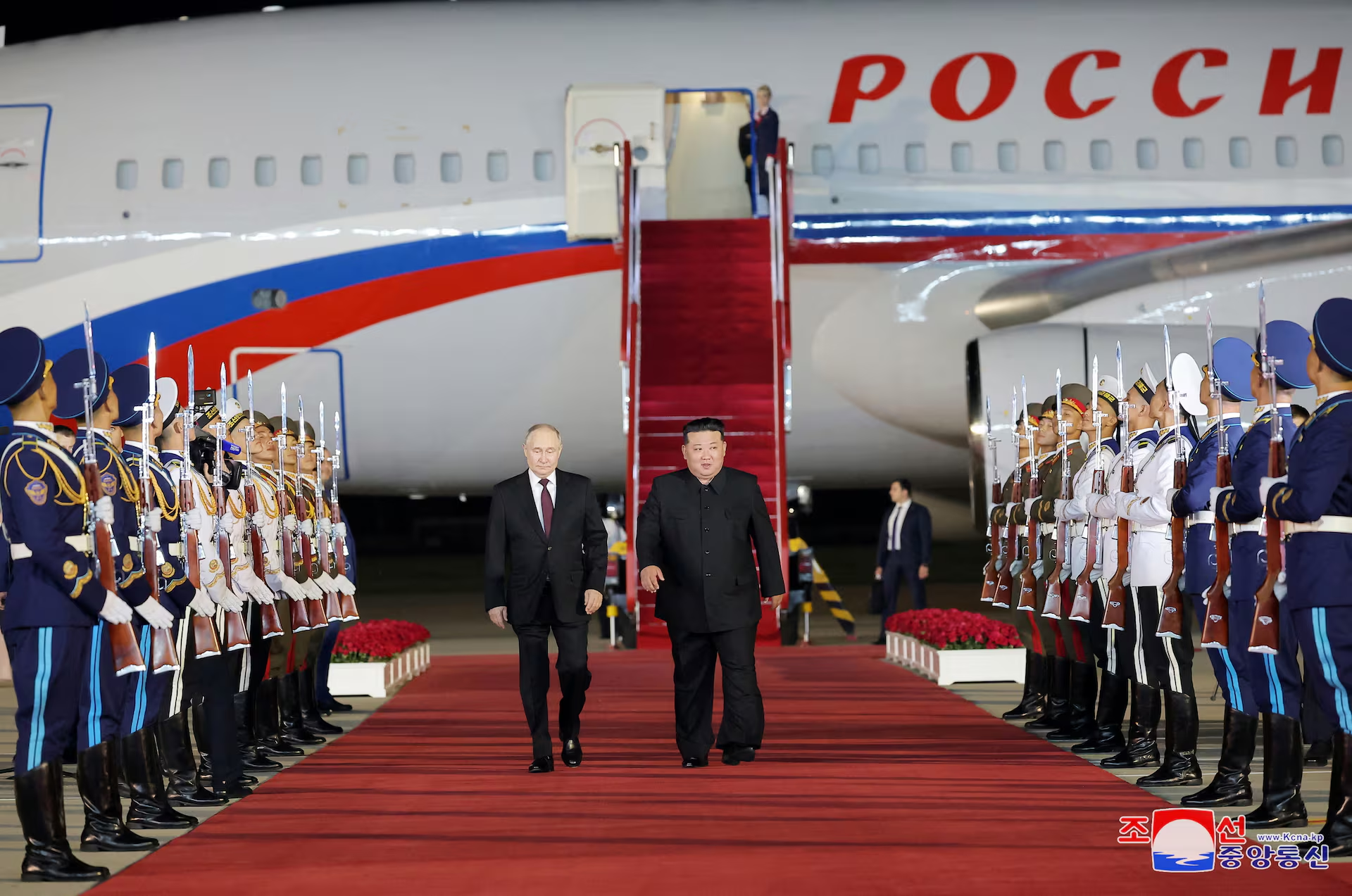
Geopolitical Implications and Future Outlook
1. Strategic Alliances and Global Impact
-
The growing closeness between Russia and North Korea challenges existing US-led alliances and highlights shifts in global power dynamics.
-
Observers speculate on the sustainability of this newfound alliance and its implications for regional and global stability.
2. Impact on International Relations
-
Putin's visit underscores Russia's efforts to assert its influence not only in Europe but also in the Asia-Pacific region, signaling a broader geopolitical strategy.
3. Future Prospects and Challenges
-
While Putin and Kim may reap immediate benefits from their strengthened alliance, the long-term sustainability and implications for global stability remain uncertain.
Putin's visit to North Korea marks a pivotal moment in geopolitical relations, underscoring the complexities of international diplomacy amidst heightened global tensions and economic sanctions. As both leaders navigate these challenges, their alliance reshapes regional dynamics and poses strategic questions for global powers.
With inputs from agencies
Image Source: Multiple agencies
© Copyright 2024. All Rights Reserved Powered by Vygr Media.

